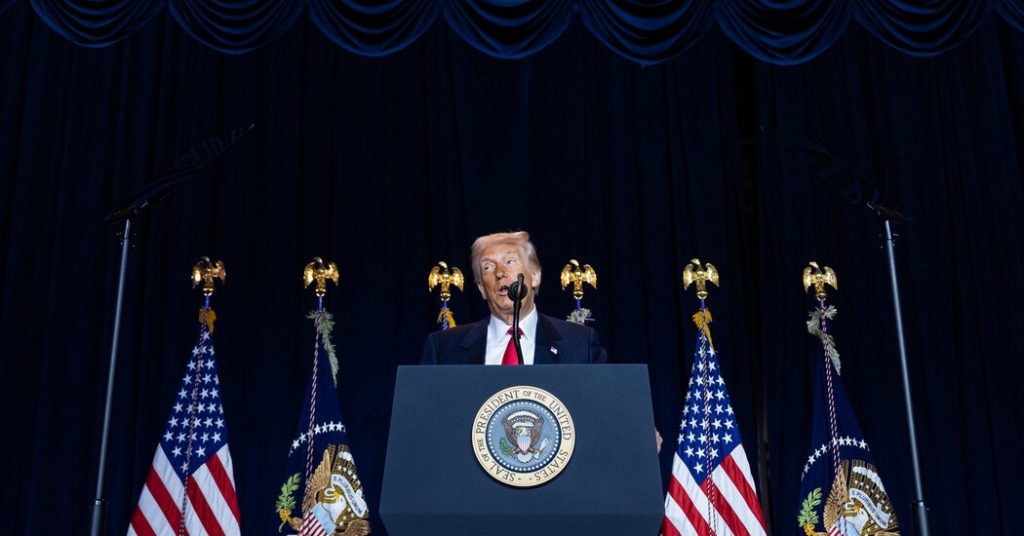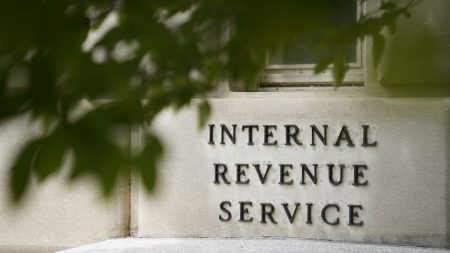In recent weeks, the judiciary has emerged as a crucial front in a significant legal battle against President Trump’s swift and controversial executive actions. Since the beginning of his second term, Trump has introduced a flurry of executive orders that have upended various aspects of federal governance, prompting a wave of lawsuits from state attorneys general, unions, and nonprofits. These legal challenges aim to block or mitigate the impact of Trump’s policies, which opponents argue violate the Constitution, existing laws, and the system of checks and balances. Unlike his first term, when public protests and congressional resistance were more prominent, the legal arena has become the primary venue for pushback against his administration. Lawyers involved in these efforts emphasize the critical role of the courts in holding the executive branch accountable and upholding the rule of law.
The legal pushback has already yielded some significant, albeit temporary, victories. Judges in multiple federal courts have issued orders halting or restricting several of Trump’s executive actions. These include attempts to end automatic citizenship for children of undocumented immigrants, transfer transgender inmates to prisons based on their biological sex rather than gender identity, and access sensitive data related to FBI personnel involved in investigating the January 6 Capitol attack. Other court orders have blocked policies aimed at coercing federal employees into accepting “deferred resignation” under tight deadlines and freezing billions of dollars in domestic spending. Notably, these legal challenges have also highlighted the administration’s willingness to test the boundaries of executive power and its willingness to defy legal norms. As Skye Perryman, CEO of Democracy Forward, noted, the courts are now the “front line” in this battle to preserve constitutional governance.
However, the judiciary’s ability to keep up with the administration’s rapid pace of executive actions remains uncertain. While some early court rulings have offered opponents cause for optimism, the legal process is inherently slow, and the administration’s strategy appears designed to overwhelm its adversaries. Legal experts suggest that Trump’s team is intentionally pushing the limits of executive authority to create a high volume of legal challenges, which could strain the resources of opposing groups and the courts themselves. This approach may also be aimed at securing favorable rulings from the conservative-majority Supreme Court, potentially setting precedent-shattering decisions that expand executive power. As Yale Law School professor Judith Resnik observed, the administration’s tactics seem to consume significant resources, diverting public attention and testing the resilience of the legal system.
Judges have been explicit in their criticism of the administration’s actions, often emphasizing the importance of adhering to the Constitution and the separation of powers. For instance, Judge John Coughenour of Seattle rebuked Trump’s attempt to end universal birthright citizenship, stating that the Constitution “is not something with which the government may play policy games.” He underscored that such a fundamental change would require a constitutional amendment, not an executive fiat. Similar sentiments have been expressed in other rulings, where judges have struck down policies they deem unconstitutional or beyond the scope of executive authority. Yet, despite these strong statements, the administration has shown signs of resistance to court orders, raising concerns about its commitment to the rule of law. In one notable case, states accused the administration of continuing to freeze federal funds despite a court order to stop, highlighting the potential gap between judicial rulings and real-world enforcement.
The attorneys general leading these lawsuits, many of whom are Democrats, have presented a united front in their legal efforts. They argue that Trump’s actions pose an existential threat to constitutional governance and the rights of their constituents. Oregon Attorney General Dan Rayfield, for example, warned that no president should be able to “rewrite 120-plus years of interpretation of the Constitution with a stroke of a pen.” These state leaders have been preparing for this moment since early 2024, anticipating the legal battles that would arise from a second Trump term. Their efforts are not just about defending the law—they also carry political implications. As Yale Law School professor Akhil Reed Amar noted, the attorneys general may reap political dividends if their efforts are perceived as a successful defense of citizens’ rights. However, this also means that their lawsuits could be seen as politically motivated, potentially undermining their credibility in the eyes of some.
The involvement of Elon Musk, the billionaire businessman granted extraordinary powers by Trump to reshape the government, adds another layer of complexity to this legal landscape. While Musk’s role is unprecedented and controversial, the administration argues that his actions are lawful, as he operates under the authority of acting cabinet members. However, attorneys general and legal experts have raised concerns about the legality and implications of his involvement. New York Attorney General Letitia James described the situation as a “constitutional crisis,” emphasizing the stakes for the judiciary and the broader principles of equal justice under law. As the legal battles escalate, the courts will face increasing pressure to address these challenges swiftly and fairly. The outcomes of these cases will not only shape the trajectory of Trump’s presidency but also determine the enduring balance of power in the U.S. government. The coming months will be a test of the judiciary’s ability to uphold the Constitution and ensure that no branch of government operates above the law.












